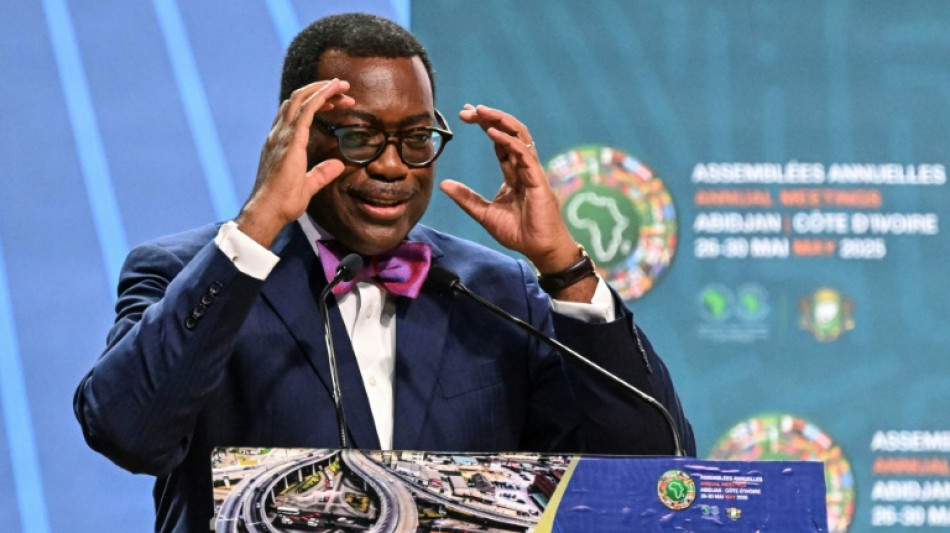

Africa elects its next 'super banker'
The race to become Africa's next "super banker" ends on Thursday, with five candidates, including one woman, vying to succeed Nigeria's Akinwumi Adesina as head of the African Development Bank in a contest that appears too close to call.
In 2015 it took six rounds of voting to elect Adesina as president of the AfDB, which was founded in 1964 and now has 81 members, including 54 African nations.
Based in Ivory Coast's economic capital Abidjan, the AfDB is one of the world's largest multilateral development banks, and is funded by member subscriptions, loans raised on global markets as well as repayments and income from loans.
But Adesina's successor will immediately face a disrupted international economic environment, notably due to announcements from the US Trump administration.
Beyond tariffs, the AfDB is also facing the threat of losing 500 million dollars in US funding for its projects to support low income countries on the continent.
Two of the five candidates are from west Africa -- former finance ministers Amadou Hott of Senegal and Sidi Ould Tah of Mauritania.
Two others hail from southern Africa -- Zambian economist Samuel Munzele Maimbo and South African Bajabulile Swazi Tshabalala, who was previously a vice president at the institution.
Chadian Abbas Mahamat Tolli, the former governor of the Bank of Central African States, will represent central Africa, which has never held the AfDB presidency.
- Five priorities -
All five promise to make the AfDB even more effective to transform Africa, continuing Adesina's five priorities to light up, feed, industrialise, integrate and improve quality of life.
"I am proud of the legacy we are leaving behind for... my successor, for the bank, and for Africa," the outgoing president said in a speech on Tuesday.
"We have built a world-class financial institution that will continue to advance Africa's position within a rapidly changing global development and geopolitical environment."
Adesina said 565 million people had benefited from AfDB projects during his decade in charge.
Major projects include support for the construction of the Gabal El Asfar wastewater treatment plant in Egypt -- the largest in Africa.
The bank also helped finance a bridge connecting Senegal and the Gambia, expanded the port of Lome in Togo, and supported sanitation projects in Lesotho and access to electricity in Kenya, he said.
From 2015 to this year, the bank's capital more than tripled from $93 billion to $318 billion, he added.
- Election rules -
To win Thursday's election, candidates must secure a majority of votes from all member countries and a majority of votes from African nations.
But the weight of each shareholder state is determined by the extent of its capital contribution to the bank.
As such, the five largest African contributors -- Nigeria, Egypt, Algeria, South Africa, and Morocco -- will be especially courted.
The United States and Japan are the largest non-regional contributors.
If there is no winner in the first round, the candidate with the fewest votes is eliminated, a situation that repeats until a candidate achieves the required majority.
Alliance-building will therefore be crucial on Thursday, in the corridors of the Hotel Ivoire in Abidjan.
T.Bastin--JdB



